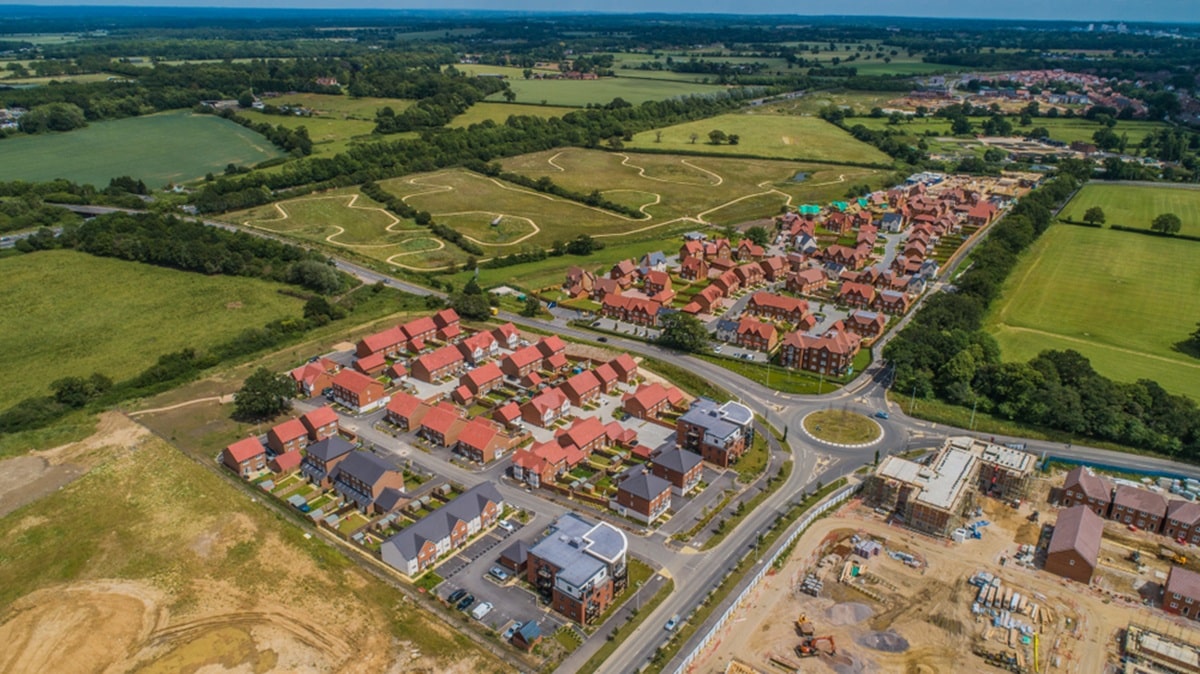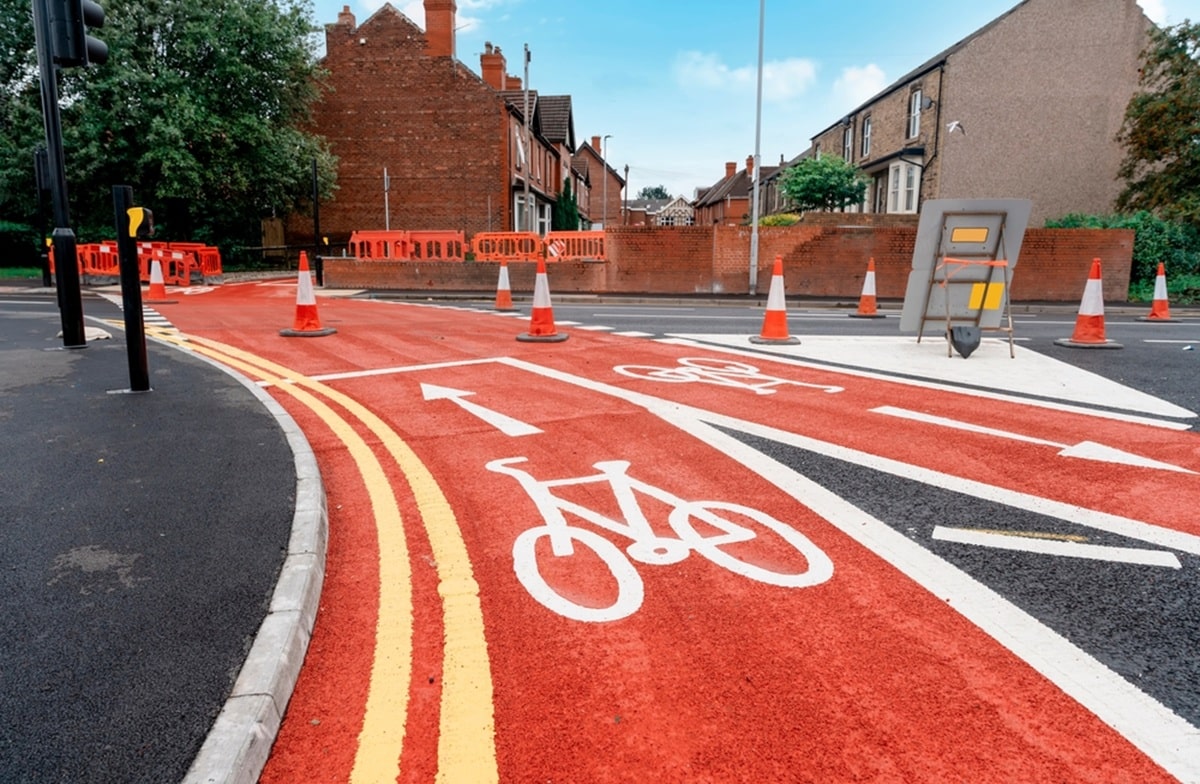What is Transportation Planning and Management?
Transportation Management Plans play a pivotal role in shaping the design and functionality of UK towns and cities by outlining measures to manage and optimise transportation systems. Transportation management plans (TMPs) mean that transportation infrastructure aligns with developmental goals, environmental sustainability and the needs of the travelling public.

The Role of a Transportation Management Plan
Transportation management and planning involve the assessment, design, and implementation of transportation systems to facilitate the efficient movement of people and goods. Within the UK planning system, transport planning is integral for several reasons:
Local Authorities
Local councils are responsible for developing Local Plans that guide land use and development. Incorporating transport planning ensures that new developments are accessible and that existing transportation networks can accommodate growth. A local council will approve plans considered tolerable based on evidence in the transportation management plan. A site suitability assessment may also be required.
Highways Issues and a Transport Management Plan
Transport planning addresses the impact of new developments on road networks. By conducting transport assessments, planners can identify potential congestion issues and propose infrastructure improvements or traffic incident management strategies to mitigate adverse effects, ensuring safety and mobility on the transportation network.
Environmental Considerations
Effective transport planning contributes to environmental sustainability by promoting modes of transport that reduce carbon emissions, such as public transit, cycling, and walking. This approach aligns with national objectives to combat climate change and improve air quality.
Why developers need Transportation Management Plans (TMPs)
For developers, Transportation Management Plans (TMPs) are an essential component of the planning application process. They demonstrate a commitment to minimising the sustained work zone impacts of a proposed development, achieving an effective construction staging process and ensuring compliance with regulatory requirements. Key reasons for implementing a Transportation Management Plan include:
Regulatory compliance
Planning authorities often require a Transport Management Plan as part of the application process, especially for significant projects. This document provides evidence that the developer has considered the impact of transportation operations on the travelling public and has planned work in line with the relevant agency’s work zone policies.
Public awareness and community acceptance
A well-structured Transportation Management Plan addresses potential concerns from local communities and local businesses regarding traffic congestion, mobility impacts, work zone impacts and road safety. Proactively managing these issues via outreach strategies and providing public information can facilitate smoother consultations and approvals.
Sustainable development
Incorporating sustainable transport solutions within Transportation Management Plans aligns with broader environmental goals and can enhance the marketability of the development to eco-conscious stakeholders.

Transport Management Plan: Consultancy Services
Developers often engage transport planning consultants to navigate the complexities of transportation management. These experts offer a range of services, including:
- Transport assessments and statements: Evaluating the potential impact of a development on the existing transport network and proposing mitigation measures to minimise sustained work zone impacts. This assessment is crucial for informing planning decisions and ensuring that developments do not adversely affect traffic flow or broader safety and mobility aspects. It will also take into account other concurrent projects nearby and may involve temporary traffic control systems. Providing public information and liaising with the community is part of the assessment process.
- Travel plans: Developing strategies to encourage sustainable travel behaviours among occupants and visitors of a development, such as promoting public transport, cycling, and walking. Travel plans aim to reduce reliance on private vehicles, thereby decreasing traffic congestion, environmental and mobility impacts.
- Traffic impact assessments: Analysing the effects of proposed developments on transportation operations, traffic volumes and patterns and recommending infrastructure improvements or policy changes to accommodate these effects. Their engineering judgment helps consultants to identify potential bottlenecks and plan for necessary upgrades to transportation networks.
- Road safety audits: Systematically evaluating new road schemes to identify potential safety issues and suggest traffic control improvements. Ensuring road safety and mobility is paramount to protect all users and reduce the likelihood of accidents.
- Sustainable transport strategies: Crafting plans that integrate various modes of transport to reduce environmental impact and promote efficient movement. Transportation management plans include designing infrastructure that supports electric vehicles, cycling lanes, and pedestrian pathways.

Transport Planning and Maintenance
The transport planning process is complex: a transport management plan involves several key stages:
- Appraisal and design: Assessing current transportation operations and designing solutions that align with the development’s objectives and regulatory standards. This stage involves data collection, traffic modelling, and scenario analysis to inform design decisions about a new transportation network.
- Supporting planning applications: Preparing detailed transport assessments and travel plans to accompany planning applications, demonstrating that transportation impacts have been thoroughly considered and addressed using engineering judgment. These documents provide evidence-based analyses that inform decision-makers about the viability and sustainability of the proposed development.
- Town centre regeneration: Utilising transport planning to revitalise urban centres by improving accessibility, reducing congestion, and enhancing the overall environment. This can involve redesigning public spaces, optimising public transport routes, and implementing pedestrian-friendly initiatives to attract local businesses and visitors.
- Traffic management plans: Developing strategies to manage traffic flow and transportation operations during and after construction, ensuring minimal disruption and maintaining safety and mobility for construction workers in the work zone. This includes planning for road closures, temporary traffic control, signal retiming, public information and coordinating with local authorities to ensure public awareness of changes.
- Travel demand management: Implementing measures to influence travel behaviour, such as flexible working hours or incentives for using alternative transport to reduce peak-time congestion, like public transport, cycling and walking. By spreading travel demand more evenly, the strain on transportation infrastructure can be alleviated.
Transport Planning and Maintenance and Climate Change Mitigation
Transport planning is intrinsically linked to addressing climate change and managing travel demand. By promoting sustainable transport options and reducing reliance on fossil fuel-powered vehicles, transport planning helps lower greenhouse gas emissions. This contributes to national and global efforts to combat climate change and transition to a low-carbon economy.
Use a TMP to Fulfil Planning Requirements
Transportation management plans (TMPs) are a vital tool in the development and design of UK towns and cities. They ensure that transportation considerations are seamlessly integrated into the planning process and that work zone impacts are well-thought-out to reduce disruption.
Transportation planning and maintenance must balance developmental aims with environmental sustainability, improved transport systems and community well-being. Engaging experienced transport planning consultants can provide the expertise necessary to navigate these requirements.
Arbtech has solid relationships with a wide range of service providers. We can put you in touch with knowledgeable transport planning consultants who can compile transportation management plans for projects across the UK. For further information, fill in the contact form at the top of this page.


